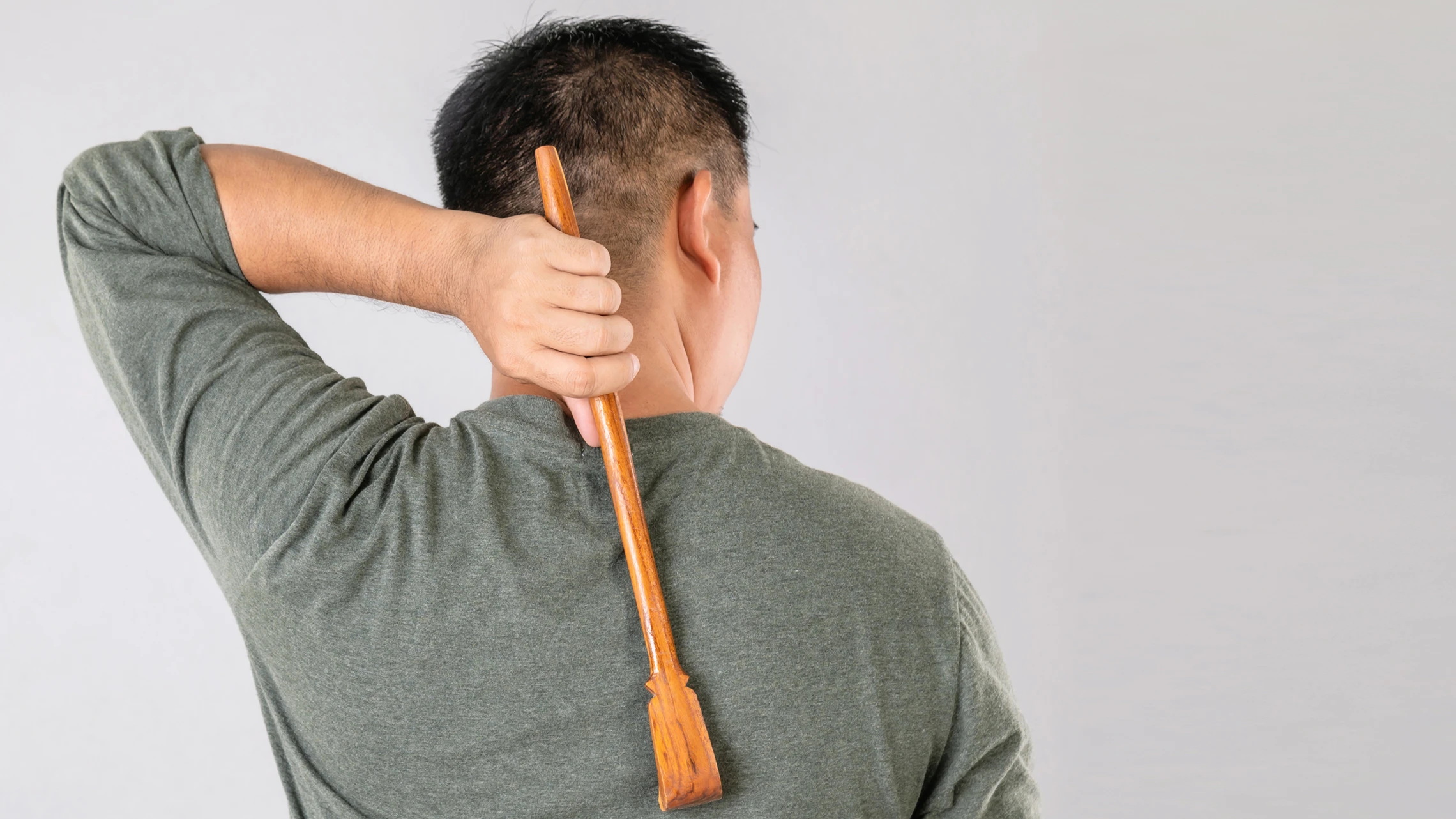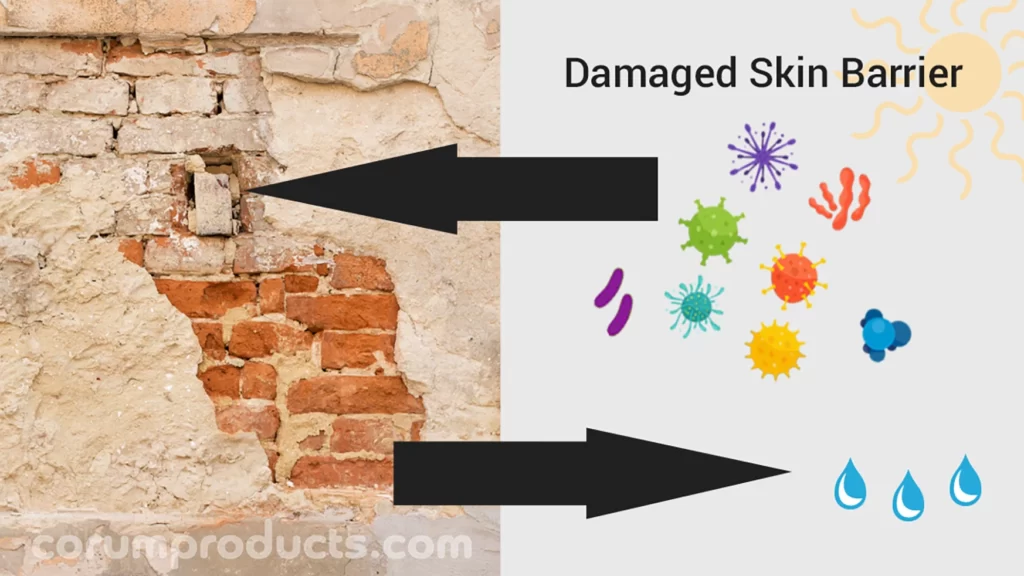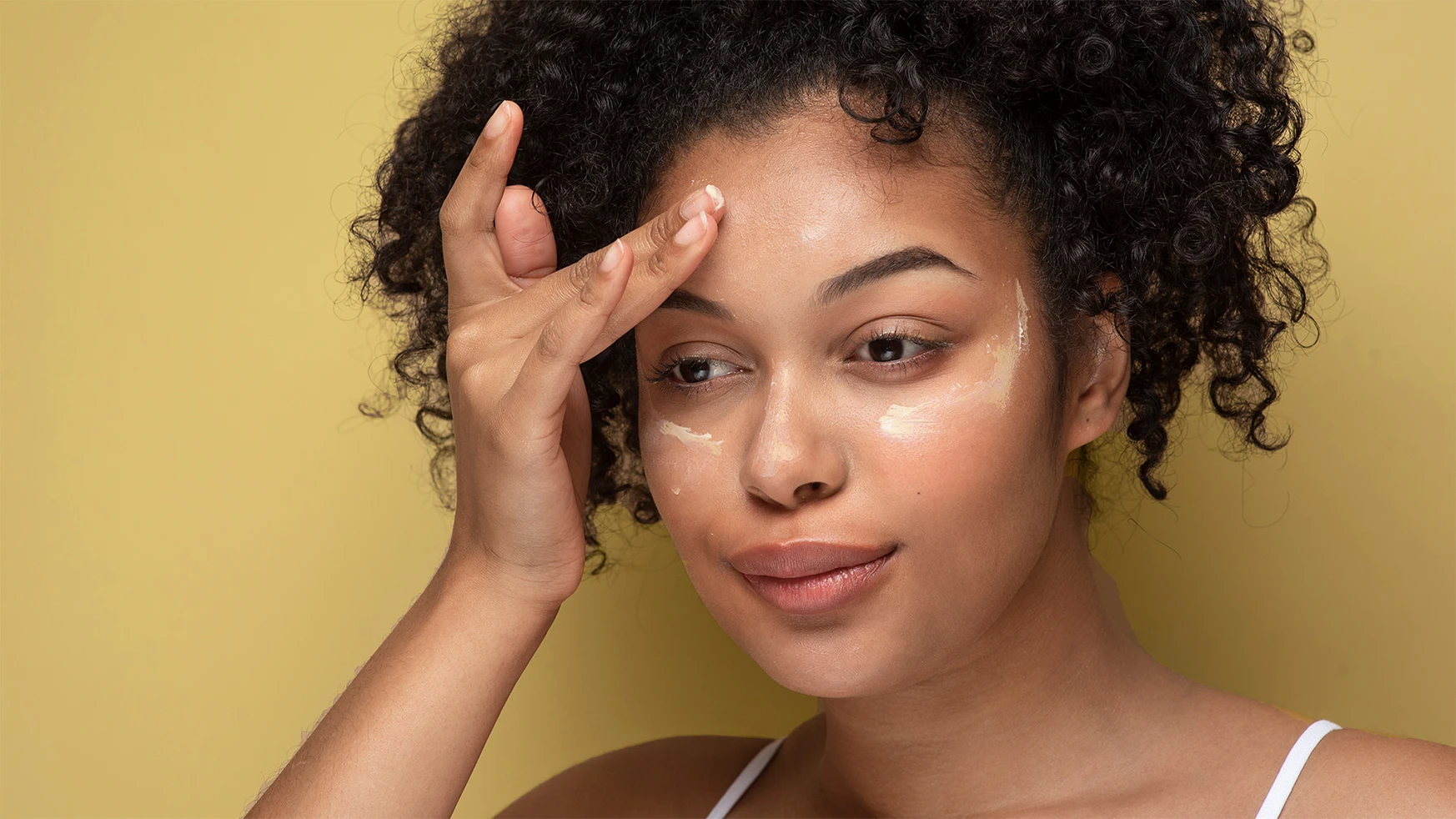

Dry skin is a type of skin that affects people of all ages. It is different from dehydrated skin, though the results of both dry skin and dehydrated skin are similar.
| Dry Skin | Dehydrated Skin |
|---|---|
| Skin lacks sufficient oil | Skin lacks sufficient water |
| Benefits from topical application of oils | Benefits from topical application of humectants that help bind water to the skin |
| Is a type of skin | Dehydration can affect all skin types |
| Permanent state | Temporary state |
| When pinched, skin DOES snap back quickly | When pinched, skin does NOT snap back quickly |
| May result in a scales or flakes, redness, irritation, itchiness, dull skin or an ashy appearance, tightness, fine lines, wrinkles, cracks, psoriasis or eczema | May result in darker under-eye circles, itchiness, dull skin or an ashy appearance, tightness, fine lines and wrinkles |
Dry skin is more than just uncomfortable or unattractive. It’s a sign that the skin barrier is damaged.
The skin acts as a barrier to keep good things inside the body and harmful things out. Healthy skin is like a new wall with several layers. It has several layers that work together to keep good things in and bad things out.
The top layer, called the stratum corneum, is referred to as the skin barrier. It consists of cells (corneocytes) that are like bricks and a mixture of lipids, phospholipids, and water that are like mortar. Lipids are oily or waxy substances that mainly include ceramides, cholesterol, and fatty acids.
The cells are coated with a thin layer of oil (sebum) that makes them water-resistant.
This complex structure prevents water loss from the skin and blocks harmful substances such as bacteria, viruses, irritants, sun rays, and allergens.
if the lipid/water mixture becomes dry or damaged, or if the sebum layer is too thin, the structure becomes weak and develops gaps. This leads to water loss from the skin (transepidermal water loss) and makes the skin more prone to infections and inflammation.




Flaky skin may be a symptom of dry skin, but it also may indicate the skin microbiome has been compromised by Malassezia yeast overgrowth. Malassezia can cause a long list of unpleasant skin conditions.
If flaky skin doesn’t respond to the recommendations for dry skin, then it’s possible the products that usually benefit dry skin are actually feeding the Malassezia yeast and making the skin condition worse.
If you have a fungus-related condition such as fungal acne (Malassezia folliculitis), Eczema, Seborrheic Dermatitis, Pityriasis Versicolor, Razor Bumps, Hot Tub Rash, or Barber’s Itch, be sure to use Malassezia-safe products that will not feed the Malassezia yeast until the skin barrier returns to normal.


If you’re wondering how to prevent dry skin, first consider your cleanser. Many water-based face cleansers have surfactants that can strip the skin of natural moisture and oil. Bar cleansers and soap usually have a pH that is too high for healthy skin.
Corum Barrier Repair Oil Cleanser nourishes and cleanses without stripping away natural sebum and moisture. This is what I use in the evening to remove makeup and the gunk that builds up during the day.
I follow the oil cleanser with a second no-rinse aloe-based cleanser and toner. This step removes invisible pollutants and other debris that can disturb the skin’s microbiome. It gently removes the outermost layer of dead skin cells and leaves hydration-locking ingredients to support the skin barrier throughout the day or night.
Corum Superfruit Hydrating Cleanser is what I use first thing in the morning to easily cleanse and hydrate my face without drying.
Both of these face wash products are great for helping to prevent dry skin.


Good skin requires both water and oil. Both dry and dehydrated skin can benefit from a skincare routine that helps to hold water and oil in the skin.
FIRST LAYER – Water-locking humectants are typically found in water-based products such as cleansers and serums.
SECOND LAYER – Emollients are oils and waxes that are found in creams and balms. These moisturizers hold in the building blocks of good skin and protect the water/lipid “mortar” in the stratum corneum. Choose nutrient-rich, anti-inflammatory plant oils containing free fatty acids (5) and antioxidants (6).
THIRD LAYER – Sunscreen
IMPORTANT: If you have a fungus-related condition such as Malassezia Folliculitus (“fungal acne”) or Eczema, do not follow the routine recommended here for dry skin. Instead, first follow a routine to control Malassezia yeast overgrowth. (Learn more)
All CORUM products are formulated to combat dryness and support the skin barrier.
Corum Skin Barrier Repair Cream, a plant-rich aloe juice and oil emulsion, moisturizes, soothes, nourishes, rejuvenates, and provides long-lasting protection for dry, itchy, or acne-prone skin. I used this on my hands every time I wash them and all over the body after a shower to bind water to the skin.
Corum Barrier Repair Natural Face Oil Serum set is a weekly rotation of rejuvenating and moisturizing plant oils that I use as the last step in my evening skincare routine for my face. This oil serum helps to nourish and seal in moisture. Each blend in the set has both non-comedogenic fatty oils and essential oils to address many different skin concerns.
Corum Barrier Repair Face and Body Oil is a special blend of hard-working inflammation-fighting plant oils. It addresses many skin concerns by nourishing with fatty acids (Omega 3,6,7,9), vitamins (A, B, C, D, E) protein, minerals, phospholipids, antioxidants, and ceramides. It’s great for sensitive skin.
Corum Barrier Repair Lip Butter helps to restore and protect lips, as well as the delicate skin around the eyes and cuticles. The fragrance-free balm creates a nourishing seal to lock in hydration.


Sadly, there has not been much research done to see how food affects moisture in the skin. However, there is evidence that omega-rich foods like flaxseed oil (9), walnuts, and cold-water fish such as salmon and trout can help those with dry skin.
Higher intakes of vitamin C through fruit, and linoleic acid through vegetables, seeds, nuts, meat, and eggs and lower intakes of fats and carbohydrates are associated with less dryness. (10)
Another study shows a high intake of vegetables, legumes and olive oil appeared to be helpful along with low levels of meat and dairy. (11)
Yes! Increased levels of cortisol from chronic stress can dry out the “mortar” between the cells in the skin wall.